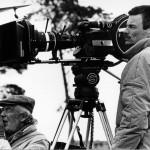offline
- powSrb
- Legendarni građanin

- Pridružio: 08 Mar 2015
- Poruke: 9456
|
Добар текст који је написао Elijah J. Magnier
Можда претерује на неким местима, али је сагледао ситуацију са једне стране баш онако као и изгледа.
Питање је шта друга страна ради и шта спрема.
Obama has the upper hand over Iran and Russia in Syria and Iraq, And without major ground forces
Прочитати и текстове који су понуђени уз поједине пасусе.
Citat:Mainstream media accused the US President Barak Obama of being “weak, indecisive, hesitant and even cowardly” in relation to the lack of full military intervention, not only in Syria against President Bashar al-Assad, but also in Iraq. Actually, Obama is quite the opposite. The President’s Middle East policy has been the most thoughtful and successful so far, and in the best interests of the US. Obama has refused to send troops on the ground to fight on behalf of the countries in the region. He has limited his involvement to a few thousand advisors, he has used local forces willing to fight and die to further the interests of the US and its allies, and he has managed to sell more weapons especially to Saudi Arabia.(Милијарде) In fact, one way or another, he has waged his own style “war on terror”.
Since the intervention of his Air Force in 2015 in Syria, Obama has been creating a form of military balance in the Levant. The US intervention within a broad coalition came only when the self-proclaimed “Islamic State” group – known as ISIS, ISIS or Daesh – turned its compass toward the US’s best established allies, Kurdistan–Iraq and Saudi Arabia. For years, Obama took the role of an observer, knowingly watching how ISI (Islamic State in Iraq) was developing its military capability in the line with its intention to form a “state” that included Syria.
The US Air Force intervention in Syria, at the start, aimed to contain ISIS not to eliminate(Obama: Forget About ‘Destroying’ ISIS, We Just Need to ‘Contain’ Them) the danger it represented. Its continuing presence was needed so as to exhaust Iran and its allies in both Iraq and Syria.
ISIS needed to understand that attacking US allies was not an option and that their guns could return their aim to where they initially started, in Iraq and Syria. In Iraq, al-Maliki’s main objective, following an Iranian request witnessed by the author, was to prevent the establishment of any US military base in the country, regardless of how unsuitable for government al-Maliki might be, whether defined by friends, the Shia coalition and parties, or by enemies.
Obama therefore sat and watched how Syria was breaking down and falling into the hands of jihadists: above all, he was watching how much Iran needed to invest to attempt to save its ally, Assad. Iran pulled into Syria forces from the Lebanese Hezbollah, Israel’s fiercest enemy and took on other Iraqi, Pakistani and Afghan militants.
Obama was selective in choosing his targets in the land of ISIS: indeed, sometimes his air force fighters would express frustration, instructed to fly past ISIS targets(Air Force Pilots Say They're Flying Blind Against ISIS) without bombing.
For over a year, Obama did not touch ISIS’s main source of income(Dick Morris: Why Obama spared ISIS oil), its oil revenue, maintaining the organisation’s continuing ability to fight for as long as necessary in the process depleting Iran, Hezbollah and its Iraqi proxies in Syria.
It was only when Russia’s air strikes hit hundreds of ISIS oil tankers that Obama decided to jump in to prevent the Kremlin from receiving all the credit for its Air Force.
Obama’s diplomacy imposed itself even on its sworn enemy, al-Qaida (AQ). The US threatened to join military efforts with Russia to bomb the AQ franchise, Jabhat al-Nusra, in Syria, unless it declared overtly that it was breaking ties. For many months, and still to date, Obama has not provided Russia with any information related to the location of the CIA-vetted Syrian groups. Russia asked repeatedly for this information to bomb jihadists, but without success. In fact, Obama demonstrated a flexible policy even with his fiercest enemy.
Consequently, through their proxies in Syria, Saudi Arabia, Qatar and Turkey played an important role in pushing Jabhat al-Nusra, to verbally disengage from AQ and rebrand with a new name: Jabhat Fateh al-Sham (JFS).
Since then, Jihadists and rebels have fought the successful battle of Aleppo this month of August, side by side as one body, and in the process taking possession of whole warehouses of weapons and ammunitions. Fighting alongside the jihadists were many CIA vetted, financed and armed rebel groups. The US was happy to support these as long as they exhaust Iran and Hezbollah, the two forces considered hostile or enemies of the US, Saudi Arabia and Israel in the Middle East, even if they fight with the enemies of the United States. Russia’s allies on the ground are complaining about the Syrian army abandoning strategic positions without putting up significant resistance. This is putting pressure on Russia to intensify air strikes, otherwise its plans to be running the peace process and humanitarian aids would be seen to fail.
In another north-eastern Syrian front, the US is supporting local Kurds, YPG, and two other groups, the “New Syrian Army” (NSA) and the “Syrian Democratic Force” (SDF or QSD – an alliance of Kurdish, Arab, Assyrian, Armenian, Turkmen and Circassian militias). Supported by the US Air Force and advisors on the ground these are fighting on the ground against ISIS. The large area this force controls to-date, following the fall of Manbij (65 km from the Turkish borders) can offer the US a military foothold in Syria, a country known before the 2011 war as the fiercest supporter of the “axis of the resistance”.
The benefits for the US don’t stop here: Russia is convinced that the US provided Turkey with its flight schedule which enabled its army to ambush and shoot down a Sokhoi Su-24 jet last year. The US had no alternative but to accept the Russian presence in Syria. It is therefore using all means and all its allies to drag the Kremlin into a long war which it cannot resist despite obvious risk of humiliation.
In addition, the US managed to halt Russia’s successful military campaign against jihadists and rebels following the recovery of Damascus troops and its allies of vast land in Latakia rural area and the south of Aleppo, by proposing a peace negotiation. The halting of the military operation permitted the jihadists and rebels to catch their breath, regroup and mount a successful counter-attack. This has forced Russia today to increase its presence in the skies of Syria, to intensify its strikes and prevent the jihadists controlling the entire city of Aleppo.
Obama finds himself winning without sending large forces of US Marines on the ground as the US did in Afghanistan and Iraq, whereas Russia is fighting with Iranian forces and their allies and a Syrian Army exhausted by five years of war.
In Iraq, the 2003 war produced thousands of US forces killed and wounded. The de-Baathification law signed by US Ambassador Paul Bremer dismantled the Iraqi Army, fattening the ranks of Jihadists: known today as ISIS! The US Army pulled out, in 2011, following the rejection by Prime Minister al-Maliki of any military base in Mesopotamia. In 2014, Jihadists and Sunni rebel tribes occupied Mosul. The US watched the events unfolding until al-Maliki was removed and a new Premier was appointed: Haidar al-Abadi. As ISIS took all the glory for itself in Mosul and threatened the rest of the country, the Shia Marjaiya in Najaf called for a popular mobilisation to stop ISIS. A new military organ was formed under the name of “Popular Mobilisation Units” (PMU). The new Prime Minister would like to replace the head of al-Quds unit within the Iranian Revolutionary Guard Corps Brigadier General Qassem Soleimani representing Iran: he was working to remove him from power. Abadi’s choice was to fully back to the US, his Trojan horse, using the excuse of the need of Air support to defeat ISIS, support Iran was not capable of providing. This has opened the road for Obama back into Iraq, to impose conditions on Baghdad and offer financial support through the IMF (International Monetary Fund). The price of fighting ISIS is high.
Moreover, Obama didn’t react to the presence of Turkish military personnel in Ba’shiqah, 50 km from the ISIS stronghold Mosul, despite repeated requests from Baghdad to withdraw. The Turkish presence could help put pressure on Baghdad after the fall of ISIS, to the benefit of the US, as a superpower capable of imposing on Turkey its withdrawal.
oday, the US suggested to Iraq Premier Abadi he should integrate the PMU into the official security forces. Some of these units are indeed more loyal to Iran than to Iraq. Their integration would force militants either to leave the official body or to integrate and receive the same benefits as all the armed forces. With this move, Abadi would reduce the threat to his political future by some of the PMU leaders raised during the war on ISIS. Simultaneously, by dissolving the PMU, both Abadi and Obama would see the Iranian influence (represented by Qassem Soleimani) dramatically reduced.
Obama has avoided a near World war in Syria by disregarding the Hawks’ voices in his administration and a big part of the mainstream media. These clearly believe more in their muscle and military capability than in brainpower and the art of diplomacy. When Obama withdrew from bombing Syria in 2015, he avoided a global war in the Middle East (Iran and proxies were ready to retaliate against Israel if Damascus were to be hit by the US). He nevertheless managed to disarm Assad’s biological and chemical weapons. These were representing a serious threat to Israel. Obama found a foothold in Syria, returned to Iraq, watched tens of thousands of jihadists gathering in Syria and Iraq, killing each other by fighting to the death, engaging Hezbollah and Iran forces. The position also enables a daily watch to be kept on how Russia is using its Air power engaged in a war that is far from ending.
inally Obama forced the former Emir of the al-Qaida franchise in the Levant Abu Mohammed Joulani, known as al-Fateh (“the conqueror”) to abandon Khorasan and break ties with al-Qaida. Does this make Obama “the conqueror of the Levant and Mesopotamia?” Only history will tell.
|

















